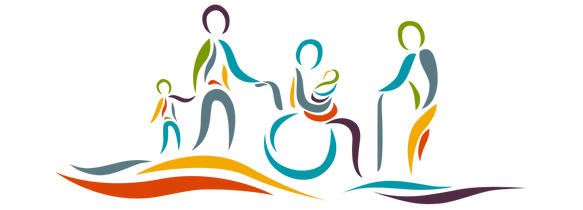What is experiential learning?
"A view of teaching and learning that incorporates the direct experience, critical reflection and negotiation as a foundation for the learning process has been summarized in a model described as the experiential learning cycle. The model was created from a broad range of cognitive science research. It is further supported by experiential and social-constructivist views about teaching.
Methodology typical to a learning cycle approach includes: choosing a concept and appropriate experience to be taught, and having students explain their experience and evaluate their ideas against others’ conclusions, as well as with their direct experiences.
In this model, environmental knowledge is not to be viewed as stable, and often can be conditional as our developing knowledge grows from exposure and experience. In the learning cycle model, teachers emphasize thinking, understanding and self-managed learning for their students."
Source:
Environmental Learning And Experience: An interdisciplinary guide for teachers, Pg 11
Methodology typical to a learning cycle approach includes: choosing a concept and appropriate experience to be taught, and having students explain their experience and evaluate their ideas against others’ conclusions, as well as with their direct experiences.
In this model, environmental knowledge is not to be viewed as stable, and often can be conditional as our developing knowledge grows from exposure and experience. In the learning cycle model, teachers emphasize thinking, understanding and self-managed learning for their students."
Source:
Environmental Learning And Experience: An interdisciplinary guide for teachers, Pg 11
"Students are viewed as constructors of their own knowledge rather than reproducers of others’ knowledge"
-Environmental Learning and Experience: An interdisciplinary guide for teachers (p. 11)
Experiential education principles of practice
As explained on What is experiential education by Association for Experiential Education (aee.org)
2) There is no single term that encompasses all the roles of the participant within experiential education. Therefore, the term "learner" is meant to include student, client, trainee, participant, etc.
3) There is no single term that encompasses all the roles of the professional within experiential education. Therefore, the term "educator" is meant to include therapist, facilitator, teacher, trainer, practitioner, counselor, etc.
--Gass, M.A., Gillis, H.L., Russell, K.C. (2012). Adventure therapy: Theory, Research, and Practice. New York, NY: Routledge.
Source: What is Experiential Education - Association for Experiential Education (aee.org)
- Experiential learning occurs when carefully chosen experiences are supported by reflection, critical analysis and synthesis.
- Experiences are structured to require the learner to take initiative, make decisions and be accountable for results.
- Throughout the experiential learning process, the learner (2) is actively engaged in posing questions, investigating, experimenting, being curious, solving problems, assuming responsibility, being creative, and constructing meaning.
- Learners are engaged intellectually, emotionally, socially, soulfully and/or physically. This involvement produces a perception that the learning task is authentic.
- The results of the learning are personal and form the basis for future experience and learning.
- Relationships are developed and nurtured: learner to self, learner to others and learner to the world at large.
- The educator (3) and learner may experience success, failure, adventure, risk-taking and uncertainty, because the outcomes of experience cannot totally be predicted.
- Opportunities are nurtured for learners and educators to explore and examine their own values.
- The educator's primary roles include setting suitable experiences, posing problems, setting boundaries, supporting learners, insuring physical and emotional safety, and facilitating the learning process.
- The educator recognizes and encourages spontaneous opportunities for learning.
- Educators strive to be aware of their biases, judgments and pre-conceptions, and how these influence the learner.
- The design of the learning experience includes the possibility to learn from natural consequences, mistakes and successes.
2) There is no single term that encompasses all the roles of the participant within experiential education. Therefore, the term "learner" is meant to include student, client, trainee, participant, etc.
3) There is no single term that encompasses all the roles of the professional within experiential education. Therefore, the term "educator" is meant to include therapist, facilitator, teacher, trainer, practitioner, counselor, etc.
--Gass, M.A., Gillis, H.L., Russell, K.C. (2012). Adventure therapy: Theory, Research, and Practice. New York, NY: Routledge.
Source: What is Experiential Education - Association for Experiential Education (aee.org)
